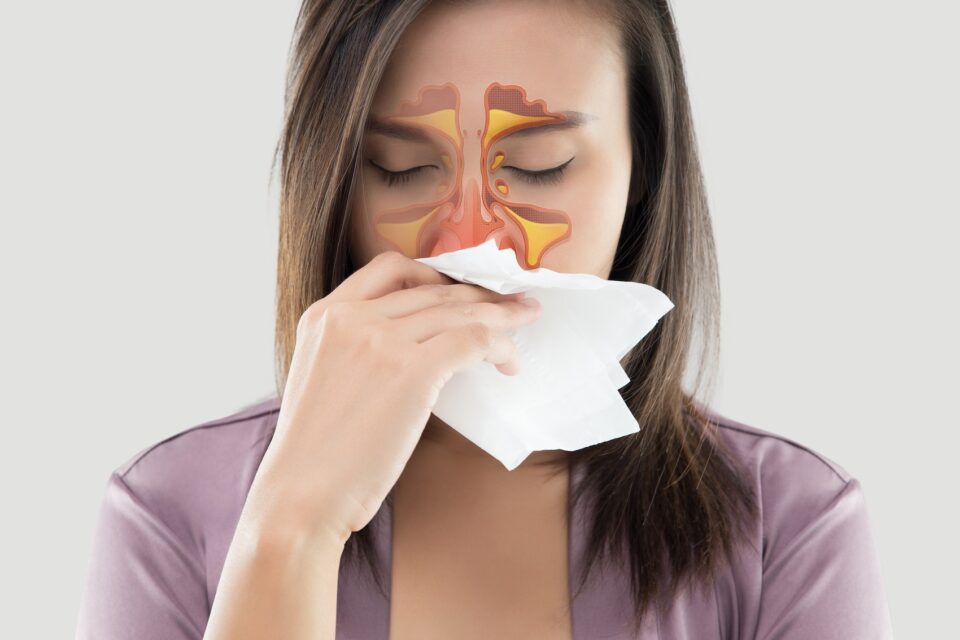If you are like most people, you have probably experienced a runny nose at some point in your life. While it might seem like a minor annoyance, nasal polyps can actually be quite serious and require treatment if they are left untreated. In this article, we provide you with the latest information on the best ways to treat nasal polyps and help you avoid any long-term complications.
Different Types of Nasal Polyps

There are many types of nasal polyps, but most can be treated with a simple surgery. Some people may need medication or laser therapy to shrink the polyp. Here are some ways to treat nasal polyps:
- Surgery: Nasal polyps can be removed by a doctor using a basic surgical procedure. The doctor will make an incision in the nose and remove the polyp. This is the most common way to treat nasal polyps, and it is usually successful.
- Medication: Many people find that they can reduce or eliminate their symptoms of nasal congestion by taking medications such as decongestants or antihistamines. These medications may also shrink or eliminate the size of the polyp.
- Laser Therapy: In some cases, laser therapy may be able to help shrink the size of a nasal polyp. This type of therapy uses a powerful beam of light to destroy the cells around the polyp, which reduces its size.
The Signs and Symptoms of Nasal Polyps

Nasal polyps are benign growths that can form on the nasal septum (the partition between the nose and mouth). Nasal polyps are most commonly found in people between the ages of 25 and 44, but they can also occur in people of any age.
Symptoms of nasal polyps include a blocked or congested nose, sneezing, a persistent cough, and difficulty breathing through the nose. Nasal polyps may also cause facial pain. If left untreated, nasal polyps can become enlarged and cause problems with breathing.
There are a variety of ways to treat nasal polyps. The most common method is surgery, but other treatments include radiation therapy and medications.
How to Treat Nasal Polyps?
When it comes to nasal polyps treatment, the best approach depends on the individual’s symptoms and underlying health conditions. Some common treatments include:
-Surgery: Nasal polyps can be removed through surgery if they are causing symptoms or if they are significantly affecting your breathing.
-Medication: Nasal polyps can be treated with medications that block growth of the polyps or shrink them down.
-Laser therapy: Nasal laser therapy is a newer treatment option that uses high-intensity lasers to shrink or destroy the polyps. It has been shown to be effective for some people, but it is not always effective and may have side effects.
-Craniosacral therapy: Craniosacral therapy (CST) is a type of massage that uses pressure and vibration to help relieve pain and improve function in the body’s soft tissues, including the sinuses. CST may be helpful in treating nasal polyps.
Diagnosis of Nasal Polyps

Nasal polyps are a type of benign tumor that can form on the roof of your nose. They can often be diagnosed with a simple exam and treatment is typically non-invasive. Nasal polyps may cause mild to moderate symptoms, but they can generally be treated without any side effects. Treatment options include medications, surgery, or a combination of both.
There are several different ways to diagnose nasal polyps. The most common way is to take a picture of the polyp using an endoscope. If the polyp is small and doesn’t obstruct the air flow, imaging technology (such as MRI) may not be necessary. Other methods used to diagnose nasal polyps include:
- Swabbing the nasal cavity for bacteria or virus
- Poking a small hole in the side of your nose and inserting a straw to measure pressure inside the nose
- Taking a sample of mucus for laboratory analysis
Once Nasal Polyps are diagnosed, there are several possible treatments depending on their size and severity. These treatments can be done either in-patient or outpatient, and may include:
- Medications such as antibiotics or steroid pills
- Surgery including removal of the polyp, a septum flap, or a tonsillectomy
- A combination of treatments such as surgery and medication
Treatment Options for Nasal Polyps
There are a variety of ways to treat nasal polyps, depending on the severity and location of the polyp. Depending on the type and location of the polyp, treatments may include:
Conservative treatments, such as observation and antibiotics if necessary, are typically prescribed for milder cases. For more severe cases, surgery may be necessary to remove the polyp.
Some doctors prescribe lifestyle changes, such as avoiding tobacco smoke and drinking alcohol excessively, to help decrease the risk of developing nasal polyps in the first place. Some people also use over-the-counter sinus sprays or drops to relieve congestion caused by nasal polyps.
If conservative treatments don’t work, patients may need surgery to remove the polyp. Surgery is most often successful for benign (noncancerous) tumors that are less than one inch in size. However, surgery is not always necessary and some patients can successfully treat their nasal polyps with medication alone.
Alternative Treatment Options for Nasal Polyps

There are a number of different treatments that can be used to treat nasal polyps. Some of the most popular methods include surgery, laser therapy, and radiation therapy. Each of these treatments has its own benefits and drawbacks, so it’s important to choose the option that is best suited for your individual case.
One option that is becoming increasingly popular is acoustic rhinoplasty. This procedure uses sound waves to reduce polyp size or eliminate them completely. It is a relatively painless procedure that can be done in a hospital or office setting.
Another option is endoscopic sinus surgery. This procedure involves removing the polyp through a small hole in the nose using a special tool called an endoscope. It is an outpatient procedure that requires only a short recovery time.
If you’re interested in trying one of these alternative treatment options, it’s important to speak with your doctor about your specific case. He or she will be able to advise you on the best approach for you.
To Wrap It Up
Nasal polyps are a common problem that can be treated in a variety of ways. Some people choose to have surgery to remove the polyp, while others opt for more conservative treatments such as antibiotics or laser surgery. Whichever route you decide to take, make sure to consult with your doctor and get their opinion on what is the best treatment plan for you.



